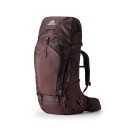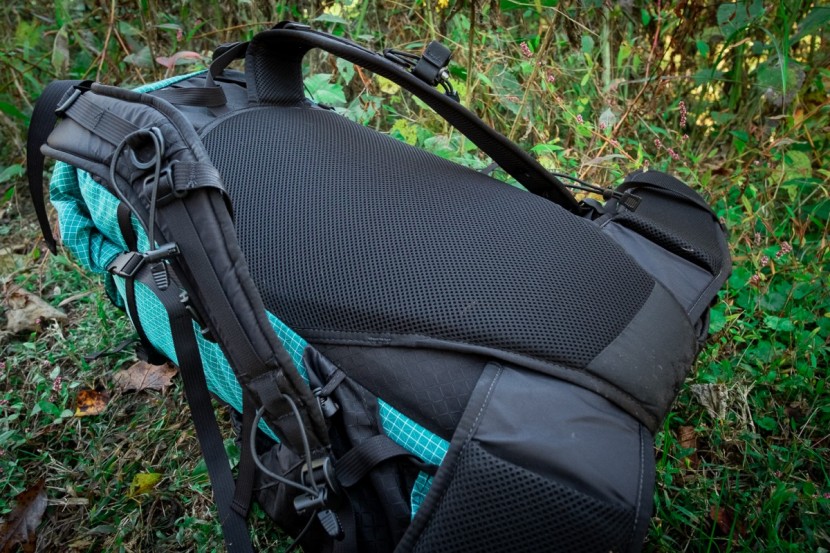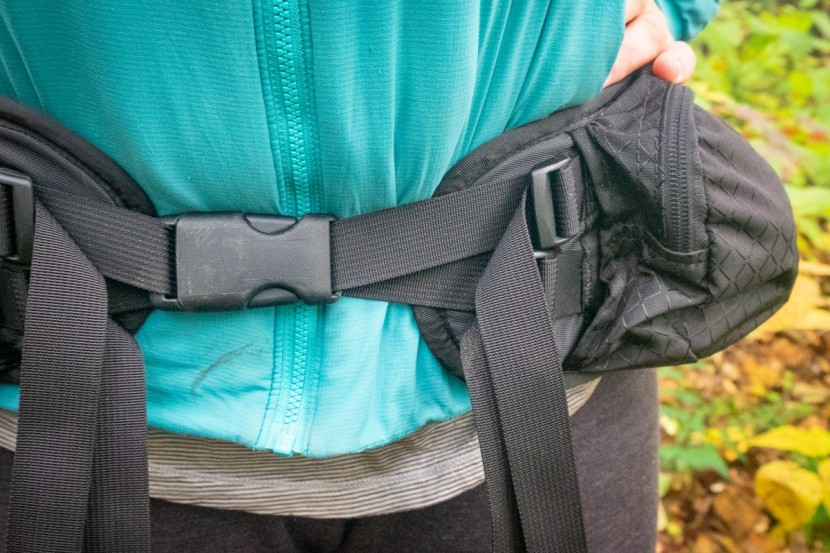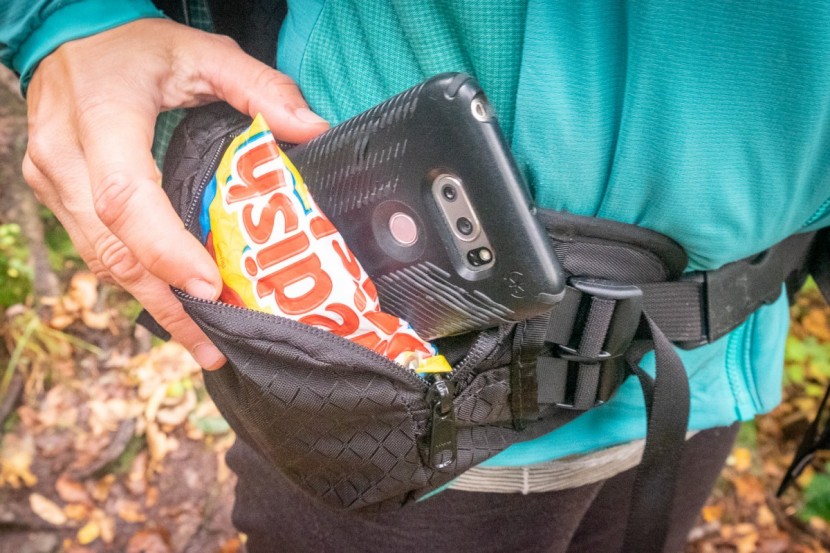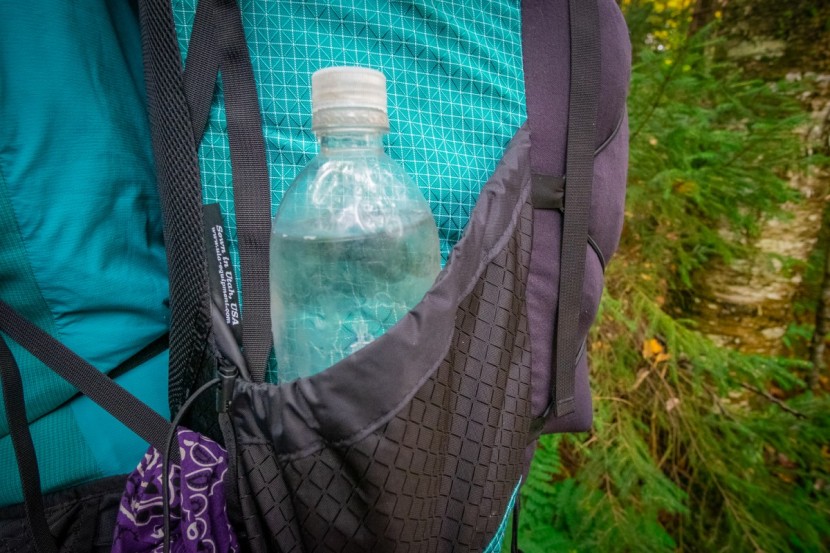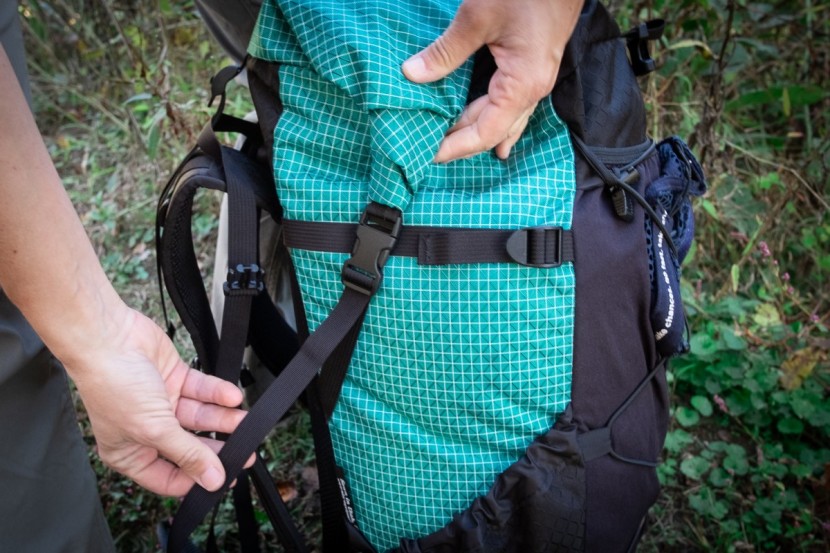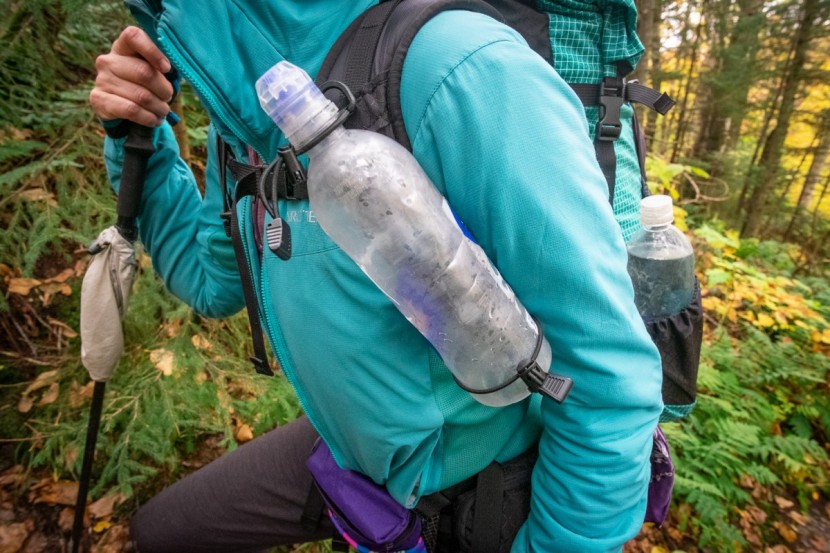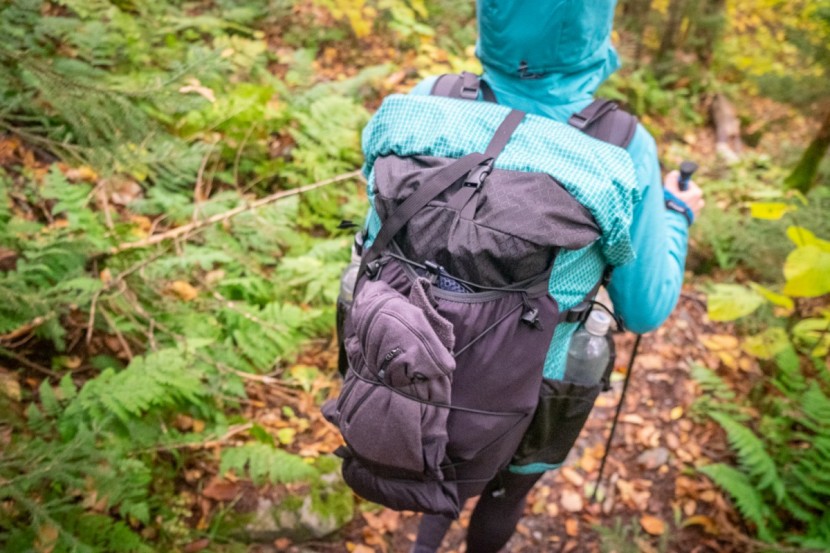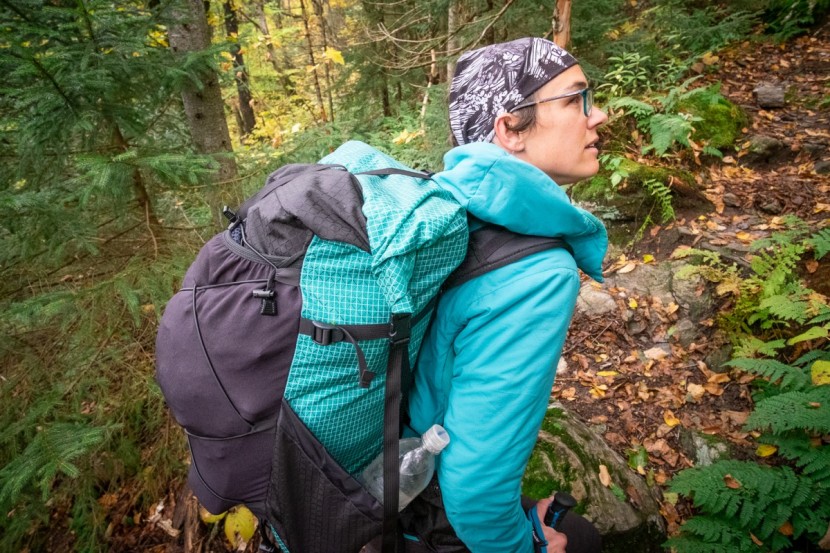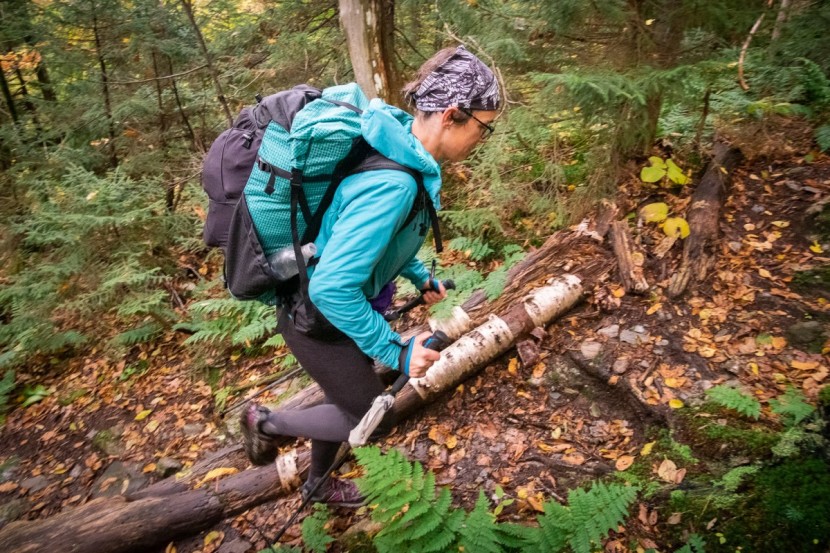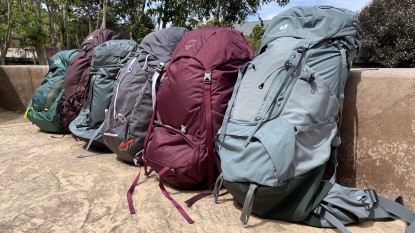Ultralight Adventure Equipment Circuit Review
Our Verdict
Compare to Similar Products
 This Product
Ultralight Adventure Equipment Circuit | |||||
|---|---|---|---|---|---|
| Awards | Best Ultralight Thru-Hike Inspired Backpack | Best Overall Backpacking Backpack for Women | Best Bang for Your Buck | Most Versatile Women's Backpacking Pack | Best Pack for Super-Hauling in Comfort |
| Price | $300 List | $260.00 at REI Compare at 3 sellers | $174.11 at Amazon Compare at 3 sellers | $199 List $199.00 at REI | $329.95 at REI Compare at 3 sellers |
Overall Score  |
|||||
| Star Rating | |||||
| Bottom Line | Comfortable suspension for all-day use, all the right pockets, and durable fabric make the Circuit a great choice | This women's pack is comfortable and well-designed, including near-effortless adjustment options, a trampoline mesh back panel, and a removable brain | A comfortable, roomy, durable pack that is friendly on your wallet and your body while you hike | From ultralight overnights to meandering multiday excursions, this lightweight and affordable pack can be adjusted to adapt to different types of demands - all in an extremely straightforward way | This large pack has all the features you need, plus all-day comfort, stability, and support for heavy loads via its overbuilt suspension system |
| Rating Categories | Ultralight Adventur... | Osprey Eja 58 | Osprey Renn 65 | REI Co-op Flash 55... | Gregory Deva 60 |
| Comfort (40%) | |||||
| Ease of Use (25%) | |||||
| Weight-to-Volume Ratio (20%) | |||||
| Adjustability (15%) | |||||
| Specifications | Ultralight Adventur... | Osprey Eja 58 | Osprey Renn 65 | REI Co-op Flash 55... | Gregory Deva 60 |
| Advertised Volume | 68 L | 55 - 58 L | 65 L | 55 L | 60 L |
| Measured Weight | 2.7 lb | 2.7 lb | 3.6 lb | 2.7 lb | 4.7 lb |
| Overall Weight-to-Volume Ratio | 0.64 oz/L | 0.79 oz/L | 0.89 oz/L | 0.79 oz/L | 1.25 oz/L |
| Volumes Available | 68 L | 38, 48, 58 L | 50, 65 L | 55 L | 60, 70 L |
| Sizes Available | S, M, L, XL, Kids | XS/S, M/L, adjustable torso | One size, extended fit one size; adjustable torso | XS, S, M, adjustable torso | XS, S, M, adjustable torso |
| Organization Compartments | Side pockets, front pocket, hip belt pockets, main compartment | Lid, mesh side pockets, front stretch pocket, dual zippered pockets on hip belt, main compartment | Lid, side pockets, hip belt pockets, main compartment | Lid, double side pockets, front pocket, hip belt pockets, shoulder strap phone pocket, main compartment | Lid, front pocket, hip belt pockets, 1 water bottle compartment, main compartment |
| Measured Volume (main compartment) | 46 L | 45 L | 40 L | 45 L | 45 L |
| Access | Top | Top | Top, bottom | Top | Top, side, bottom |
| Women's Specific Features | S-Curve Shoulder Straps | Women's specific fit | Women's specific fit | Women's specific fit | Slim profile and women’s-specific Response A3W Suspension |
| Hydration Compatible | Yes | Yes | Yes | Yes | Yes |
| Rain Cover Included | No | No | Yes | No | Yes |
| Sleeping Bag Compartment | No | No | Yes | No | No |
| Bear Can Compatible | Yes - Vertical | Yes - verical and horizontal | Yes - Vertical and Horizontal | Yes - Vertical | Yes - Vertical and Horizontal |
| Main Materials | 100% robic nylon | 100D high-tenacity recycled ripstop nylon | 600D polyester | 100D robic ripstop nylon; bluesign approved | 210D 40% recycled nylon & 420D 45% recycled nylon with PFC-free DWR |
Our Analysis and Test Results
The ULA Circuit impressed us with its comfort on long days with heavier loads. The wide, padded hip belt hugs your hips and stays put for the long haul. The simple hoop and stay frame design supported every load we threw at it. The Circuit's simple yet thoughtful design offered some of the most accessible and functional pockets of any bag in our test. It provided just about every feature we wanted, with generous hip belt pockets, a cavernous back pocket, sturdy fabric, and plenty of lashing loops for added versatility. What sets the Circuit apart from the competition is the impressive weight-to-comfort ratio and a pared-down yet well-thought-out set of organization features inspired by ultralight packs.
Comfort
We found the simplicity and low profile of the Circuit surprising, considering the level of comfort achieved. Its suspension consists of a flexible carbon fiber suspension hoop and a more rigid aluminum stay. The load is well supported by the frame, hip belt, shoulder straps, and load lifters to the point where we barely noticed the difference between heavy (35-40 pounds) and light loads.
For all the models on the market with designs that look like they came from NASA engineers, we didn't expect such a basic design to perform as well. We discovered that the highly engineered designs mostly overcome the sweaty back issue. The Circuit rests right up against your back and doesn't provide any degree of ventilation other than the padded mesh, which mostly acts to wick moisture away from your back.
ULA doesn't make “women's-specific” models but rather offers two shapes of shoulder straps. We tested the “S-Curve” style here and were surprised to find it shaped like most other women's models. The width of the straps could rub the arms of petite women, but for most testers, it wrapped nicely around our shoulders, curving quickly under our arms to avoid chafing caused by straps that are too wide and straps designed for men and those with broader shoulders.
Because of the straight frame, the top of the pack isn't as close to your shoulders as with curvier models, so it can shift around sideways when hiking rough trails and climbing over logs. As long as heavier items were kept lower in the pack, our testers didn't find it a problem.
The hip belt is broad and cushy, and because of its wide attachment to the pack, it transfers the load evenly around the pelvic girdle. The padding wraps far around the waist for supreme comfort and no webbing digging in. We were skeptical of the lack of a women's specific hip belt because the angle of a woman's hips typically means a unisex belt will flare out at the top while pinching in at the bottom. We found this model's curve and flexibility on the waist belt to hit some mythical sweet spot where it can be equally comfortable for both men and women.
The hip belt is stationary and non-adjustable, which can feel restrictive if you are used to a pack with a swiveling hip belt, but for most, feels stable and supportive. Some testers found that the waist belt can sag in the rear, but because the part that hits your backside is flexible and well-padded, it isn't as uncomfortable or painful as with packs having a rigid frame in this spot.
Ease of Use
The Circuit is one of the least complicated options we tested, similar to other ultralight models, with the notable difference that, like Baby Bear, this pack seems to get it all just right. Large, accessible pockets right where you want them and plenty of lashing straps for added versatility while cutting out features that aren't truly needed and add weight and complexity. We can appreciate that with fewer pockets, there's less opportunity to forget which pocket you put something in. However, if you are fully committed to certain pockets, ULA may have removed your favorite, meaning this pack isn't for you.
For some, the hip belt pockets are the most critical, and these are some of the largest and most functional we tested. Rather than going for a streamlined look, ULA has sewn two rectangular pockets with large zippered openings onto the existing belt. Our rectangular phones and maps thank them. You can easily fit most smartphones in these pockets and still have room for a map, compass, and at least three Snickers bars. And that's in just one of the two hip belt pockets, leaving the other one free for a beanie, sunglasses, and a windbreaker.
The side pockets on the body of the Circuit are huge but non-elastic. We see pros and cons here. Since they are non-elastic and large, it's easy for certain items to fall out when you bend over or lean too far, such as when climbing over a log on the trail. They offer no side entry option for water bottles, but we found that because of the angle of the pockets, they were still easy to get a water bottle in and out of without friendly assistance. On the positive side of such large, non-elastic pockets is the ability to carry two narrow water bottles in each one, along with other items you want to stash. The pockets do have an adjustable shock cord at the top. When cinched down, they go a long way towards keeping a water bottle in place and your other gear down inside. Overall, this type of side pocket still offers versatility and usability, while the stretchy style feels more secure.
With a simple design that cuts out all the extras, the Circuit doesn't offer access to the main compartment other than through the top. The roll-top design used by ULA is less common in backpacking packs but is seen regularly in other packs such as commuter bags, panniers, climbing packs, paddling bags, and more. We like the clean, finished look it gives the pack, but functionally didn't find it any easier or harder to use than a drawcord top. The main compartment has a wide opening for easy packing, and the roll-top closure keeps the bag looking neat and perfectly sized, whether filled to the brim for a week in the snow or on a quick overnight. A strap over the top allows you to attach other bulky items like a rope, large sleeping pad, or tent. There is no sleeping bag compartment, so if you want to pull your sleeping bag out through the bottom or get to it before unloading your whole pack, this is a packing strategy adjustment.
There is no brain. For some, this might be a dealbreaker. It took flexibility and trying out a different packing system after years of using packs with lids on top. Still, after the learning period, we felt just as organized and comfortable packing with the large hip belt pockets, spacious side pockets, and a gigantic stretchy back pocket.
The two removable accessories are the hand loops and water bottle holsters. When not in use, these pieces of material dangling from your chest make adjusting your straps slightly fiddly. Our testers found the hand loops a great addition for anyone who hikes without poles. They allow you to find a new position for your hands and shift the pack around if your shoulders or hips fatigue. You can unclip the loops and leave them at home if not needed. The water bottle holsters are only useful if you drink from the tall, thin bottles sold as disposable water bottles. We tried this unique setup (common in the ultralight community) and were impressed with the convenience and unobtrusive positioning. The Circuit comes with a removable internal reservoir sleeve and dual tube exit ports for those who drink with a hydration bladder.
While common in the ultralight market, no other models in our traditional pack review offered a stretchy mesh pocket quite as massive. The entire back of the pack comprises a large piece of dense, stretchy fabric, almost like a softshell material, crisscrossed with a shock cord over the top. This setup offers everything a backpacker needs and nothing they don't. The large pocket has plenty of space for extra layers and quick-access items. Nothing falls out of this pocket because of the tension of the fabric, but we also found that the tightness, coupled with the opacity of the material, can make it a bit tough to dig for small items at the bottom. Hanging clothing to dry on your pack or strapping down a bulky piece of gear like a foam pad is easily achieved with the crossing shock cord.
Weight-to-Volume Ratio
The Circuit stands out among the crowd for its excellent weight-to-volume ratio, weighing in at 2.7 pounds in a size medium. As one of the largest-capacity options we tested (advertised as 68 liters in total) and one of the lightest, we don't think there's a better option if cutting base ounces is your main priority.
We tried out a few models that had shaved off even more ounces but at the cost of capacity and durability. ULA uses heavy-duty Robic material for their bags, giving them more durability than many other lightweight bags and retaining comfort with a strong suspension and well-padded back panel, hip belt, and shoulder straps.
Adjustability
One area where the Circuit ranks lower is in adjustability. This isn't to say that it's hard to get the Circuit to fit, but that the pack has many fixed features that can't be moved. The hip belt has no adjustability beyond the webbing itself. Still, that limitation is mitigated by selecting a pack size and a belt size separately when ordering the pack. Even though it lacks any padding adjustment, the medium we ordered still has a forgiving range of 30" to 49", so changes in your waist size aren't likely to cause you to outgrow your pack. The torso length on the Circuit can be adjusted slightly by moving the hip belt up or down an inch. Because of the lack of adjustment here, we recommend having an experienced pack fitter help you measure your torso before ordering.
A unique customization feature in the Circuit is the single aluminum stay in the pack that can be removed and bent to accommodate those with curvier backs. One tester felt pressure toward the bottom of her spine and completely alleviated it by bending the aluminum stay slightly out toward the bottom.
The Circuit, like many models in our test, offers side compression straps for cinching down smaller loads for a more stable carry. In addition, the straps can be reconfigured for various positions to provide compression where you need it or space to strap bulky gear.
Should You Buy the ULA Circuit?
The Circuit provides superb value for its price even though it isn't the least expensive model out there. It targets backpackers who want a light yet durable pack that doesn't sacrifice its ability to carry a load comfortably. With a slimmed-down feature set retaining all the right pockets and a basic yet supportive suspension, the Circuit is an excellent pack for anyone from those going out on their first overnight to thru-hikers to folks hauling the rope into the backcountry for some alpine pitches. If you don't mind a backpacking backpack with fewer organizational features, this ultralight choice might be the way to go.
What Other Backpacking Backpacks Should You Consider?
If you want a lightweight pack with more organizational options, check out the modular REI Flash 55. The Flash weighs about the same as the Circuit but offers significantly more pockets and overall versatility. The Osprey Eja 58 weighs close to the same as the Flash and the Circuit but prioritizes comfort in a totally different way. While the Eja is not known as an ultralight pack, its 2.7-pound profile and superstar hauling capacity make it a winner in our books. If lightweight backpacks aren't exactly what you need, the Osprey Renn 65 weighs a bit more but balances it with exceptional comfort and an affordable price.






